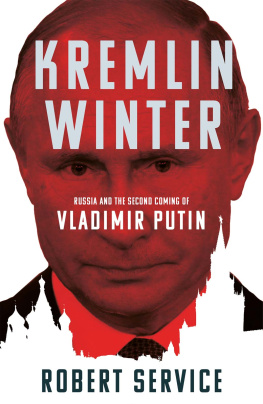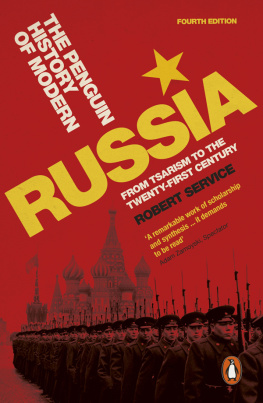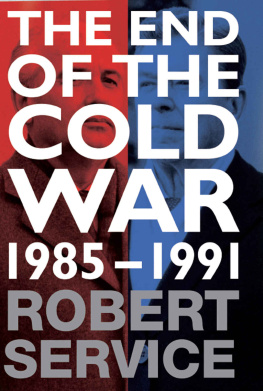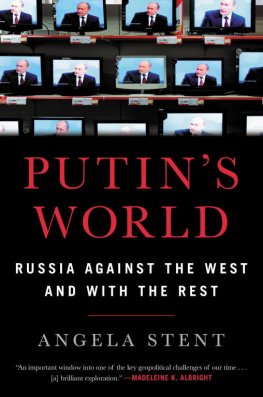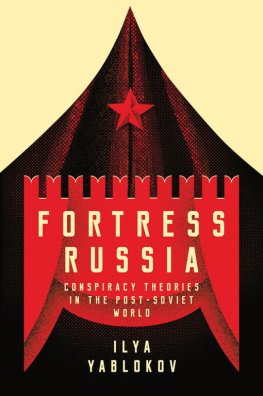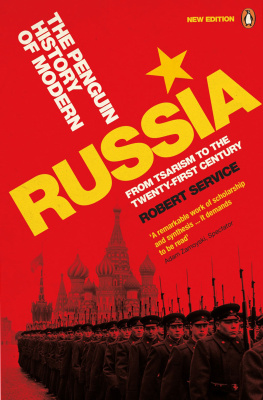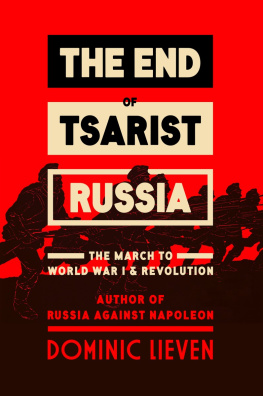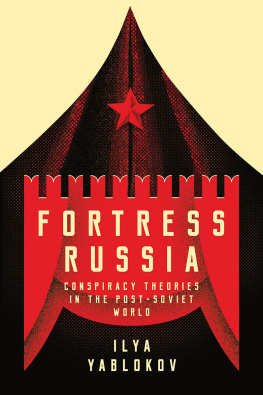Russia and
Its Islamic
World
The Hoover Institution gratefully acknowledges the following individuals and foundations for their significant support of the
HERBERT AND JANE DWIGHT WORKING GROUP ON ISLAMISM AND THE INTERNATIONAL ORDER:
Herbert and Jane Dwight
Mr. and Mrs. Donald R. Beall Beall Family Foundation
S. D. Bechtel, Jr. Foundation
Lynde and Harry Bradley Foundation
Stephen and Susan Brown
Mr. and Mrs. Clayton W. Frye, Jr.
Lakeside Foundation
Nancy Doyle, M.D.
The Hoover Institution gratefully acknowledges
THE SARAH SCAIFE FOUNDATION
for their support of this publication.

With its eminent scholars and world-renowned library and archives, the Hoover Institution seeks to improve the human condition by advancing ideas that promote economic opportunity and prosperity, while securing and safeguarding peace for America and all mankind. The views expressed in its publications are entirely those of the authors and do not necessarily reflect the views of the staff, officers, or Board of Overseers of the Hoover Institution.
www.hoover.org
Hoover Institution Press Publication No. 682
Hoover Institution at Leland Stanford Junior University, Stanford, California 94305-6003
Copyright 2017 by the Board of Trustees of the Leland Stanford Junior University
All rights reserved. No part of this publication may be reproduced, stored in a retrieval system, or transmitted in any form or by any means, electronic, mechanical, photocopying, recording, or otherwise, without written permission of the publisher and copyright holders.
For permission to reuse material from Russia and Its Islamic World: From the Mongol Conquest to the Syrian Military Intervention, ISBN 978-0-8179-2084-5, please access www.copyright.com or contact the Copyright Clearance Center, Inc. (CCC), 222 Rosewood Drive, Danvers, MA 01923, 978-750-8400. CCC is a not-for-profit organization that provides licenses and registration for a variety of uses.
Efforts have been made to locate the original sources, determine the current rights holders, and, if needed, obtain reproduction permissions. On verification of any such claims to rights in the articles reproduced in this book, any required corrections or clarifications will be made in subsequent printings/editions.
First printing 2017
Cataloging-in-Publication Data is available from the Library of Congress.
ISBN: 978-0-8179-2084-5 (cloth. : alk. paper)
ISBN: 978-0-8179-2086-9 (epub)
ISBN: 978-0-8179-2087-6 (mobi)
ISBN: 978-0-8179-2088-3 (PDF)
CONTENTS
The idea for the book came from Charles Hill, and I am grateful for his enthusiasm and encouragement. My thanks go to Roy Allison, Jonathan Aves, Paul Chaisty, Peter Duncan, Bobo Lo, Norman Naimark, Matthew Procter, Donald Rayfield, and Harun Yilmaz for their advice on background literature. My wife, Adele, examined the draft, and her suggestions resulted in many essential changes. Jonathan Aves and Harun Yilmaz also read it through. I appreciate their suggestions for amendments and insertionsI first knew Jonathan and Harun as postgraduates, and it has been a pleasure to receive the benefit of their professional expertise. I am equally indebted to my Hoover colleague Michael Bernstam, especially for his thoughts and recollections about the 1990s. My St. Antonys colleagues Roy Allison and Eugene Rogan kindly offered helpful and incisive comments on the final draft.
Russia has long played an influential part in its world of Islam, and not all the dimensions are as widely understood as they ought to be. A vivid memory stays with me from an episode in the honeymoon that Adele and I spent in summer 1975, when we arrived from Iran in eastern Afghanistan and needed a taxi in Herat. The car in which we traveled one sunny afternoon had the Russian sign AMBULYANTSIA painted on both sides. The driver, when asked in Russian, revealed that he had recently spent months in Moscow as an exchange student. I had the distinct feeling, albeit unprovable, that he was some kind of Soviet sleeper. Whatever the truth was, the experience was evidence that Russiaor, rather, the Soviet Unionwas not confining itself to diplomatic overtures in trying to spread its influence to Muslim-inhabited lands thousands of miles from Moscow. Like a lot of Sovietologists, I had taken little account of the Islamic factors in the Kremlins politics. It was a lesson on the need to examine what happened behind the scenes of Soviet public affairs.
The Russian Federation has inherited a legacy of challenging contacts and tensions with its Islamic world. It also confronts new difficulties and opportunities. This is a volatile situation. There has never been a time when it has been more important to keep watch over how Russia, its Muslim citizens, the nearby Muslim states, and the Middle East interact with each other.
Robert Service April 2017
T HE RUSSIAN ENCOUNTER WITH ISLAM WAS CLOSE and problematic long before the twenty-first century. Eight hundred years earlier, Russians as a people fell under the dominion of foreign Muslim rulers. Nowadays the Kremlin dominates Muslims in the Russian Federation, exerts a deep influence upon the Muslim-inhabited states on its southern frontiers, and has lunged militarily and politically into the Middle East.
The current moment in global affairs is dangerous for Russians and the rest of us. Since the turn of our millennium, Moscow has pursued a militant agenda in its internal and external policies. Foreigners have been taken aback by the transformation, having become accustomed to a Russia that came to the West as a needy supplicant. Russia has confirmed itself as a great power even if it is no longer the superpower of yesteryear. The pacification of Chechnya and the Syrian military intervention are the troubling examples of recent Russian assertiveness. But Russia is also entangled with its Islamic world in ways that have nothing to do with war. Muslims have for several centuries lived alongside Russians as objects of wonder and fear, and large Muslim communities continue to exist across the Russian Federation. Since the collapse of the USSR in late 1991, Russia has had to deal with the newly independent, Muslim-inhabited states on its southern frontiers. Moreover, it has chosen to interfere in Muslim states of the Middle East, building alliances and making enemies. Some features of the present-day scene display continuities with the past while others are starkly differentstarkly and hazardously different.
The first impact of Muslim states on the Russian people was registered in the thirteenth century when the Golden Horde, one of the powers that emerged from the struggles inside the Mongol elite upon the death of Genghis Khan, converted to Islam. The Golden Horde for a brief while controlled all the lands from Siberia across to the Danube. The experience for Russians was lengthy and extremely brutal. The Mongols were warrior horsemen who had swept across Asia without facing effective resistance. In the course of their campaigns they adopted the Islamic faith. Islam had already spread much earlier to some of the territories of what later came to constitute Russia, including well-established communities of believers along the river Volga as well as in Siberia, the Caucasus, and the oases of Central Asia. Strapped pitilessly to the Mongol yoke, Muscovys Christians had to render an annual tribute to their masters from the east. The Mongol khanate all too often fixed the burden without regard for its devastating economic consequences. The Mongols executed Russian rulers and sacked their cities whenever they fell short in meeting Mongol demands.




